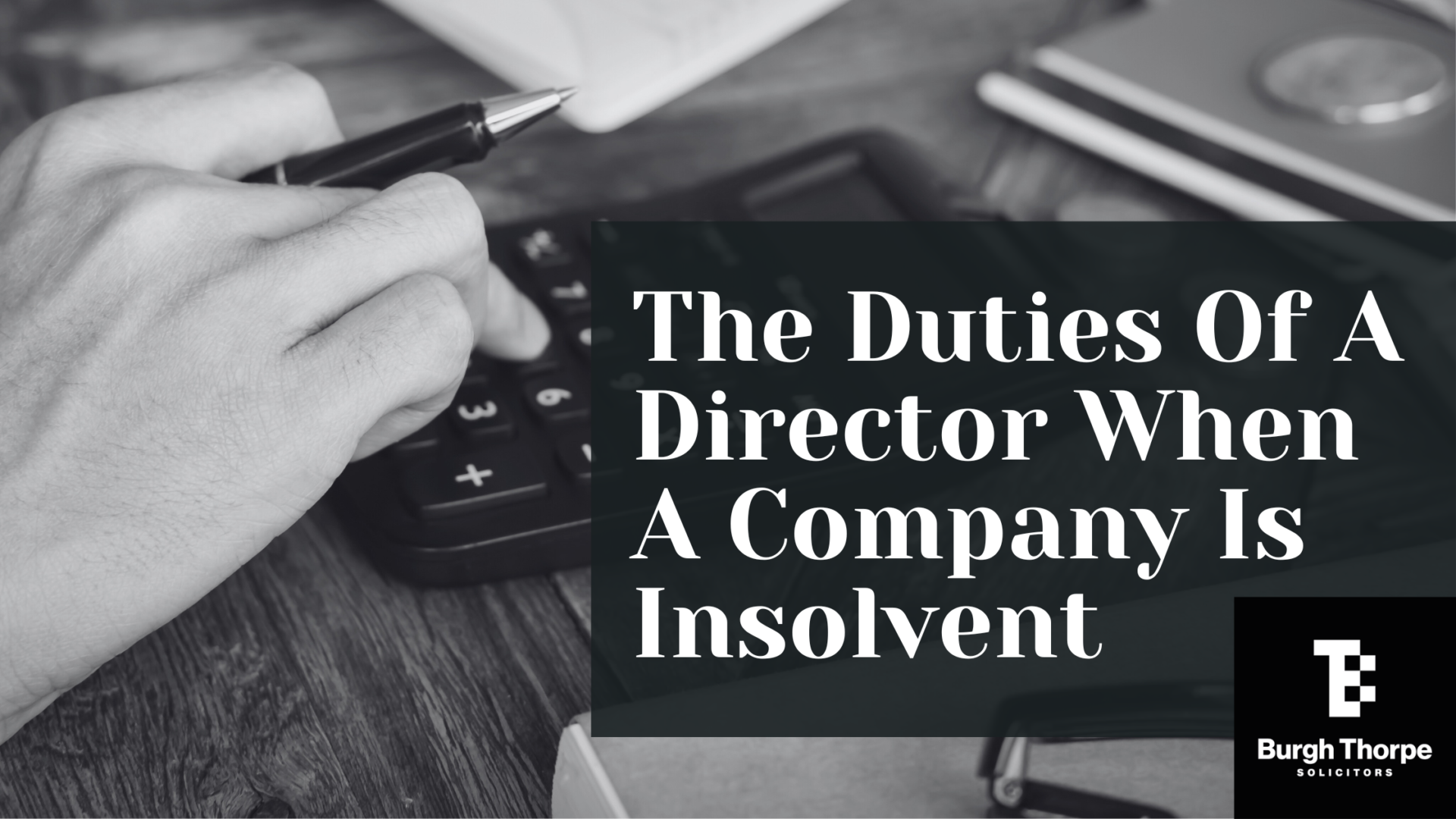The Duties Of A Director When A Company Is Insolvent
Commercial Law Posted 18 November 2024When a company becomes insolvent, it is crucial that directors comply with the legal duties. Failure to do so can result in personal liability for the debt of the company. It can also result in legal action or even disqualification from being a company director or being involved in a company in the future. This is why it is essential that you understand the duties of a director when a company is insolvent.
Firstly, let’s look at what insolvency is.
According to s123 Insolvency Act 1986, a company is deemed as insolvent when it is unable to pay its debts. If a company falls into the certain criteria, they are classed as insolvent. This criterion includes not being able to pay sums set out in a statutory demand or paying sums set out in a judgement debt.
Another criterion is the balance sheet test. This is where your company’s liabilities exceed its assets. If they do, the company is thought to be insolvent. A cashflow test will also be completed. This will state whether a company is able to pay its debts when they are due. If this is not possible, or substantial capital is tied up in assets, the company is deemed as insolvent.
As a general rule of thumb, the balance sheet test will be completed if a company has ceased trading and is unlikely to receive further income. Meanwhile, the cash flow test will be used is the company is trading and more income is expected.
When a company is seen as insolvent, there are duties a director must comply with. These are set out with the interest of the creditors in mind. They are not set out with the interest of the company shareholders in mind.
There are a number of steps that you need to take as a director when you become aware that the company is insolvent. You also need to observe and follow all insolvency rules. This is done to protect the company and the assets, for the benefit of the creditors of the company. These steps may include the company ceasing trading, holding a meeting with shareholders or preserving and safeguarding the assets of the company.
You may have to engage and cooperate with an insolvency practitioner. Reports may need to be provided to creditors. You may also need to attend any necessary meetings to cooperate with the insolvency practitioner. There may be overdrawn directors’ loan accounts that need to be repaid and there may be creditor duties that you need to observe.
Just walking away from an insolvent company is not an option. If you are unsure of your duties as a director when a company is insolvent, speak to our commercial law team. Our commercial law specialists have helped many directors, just like you, when a company is insolvent. We ca talk you through every step, obligation and responsibility that you have as the director of an insolvent company.
